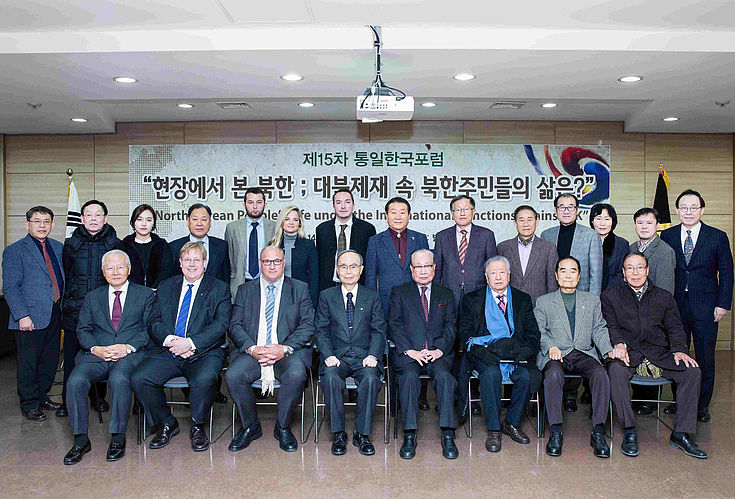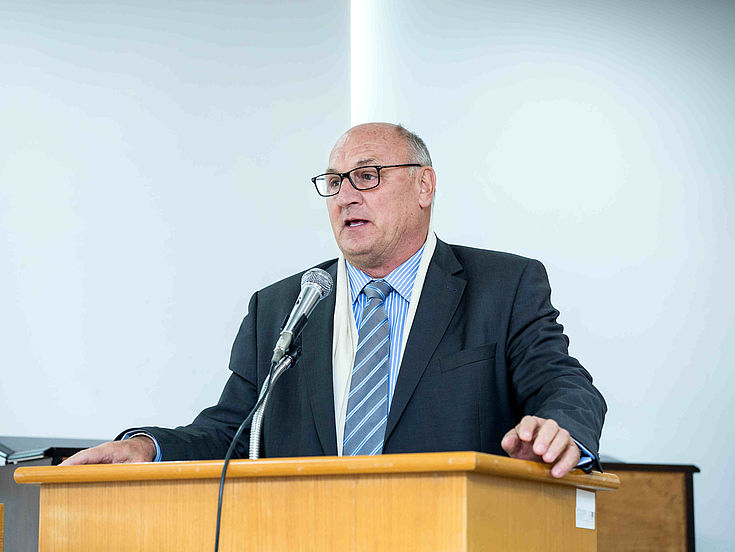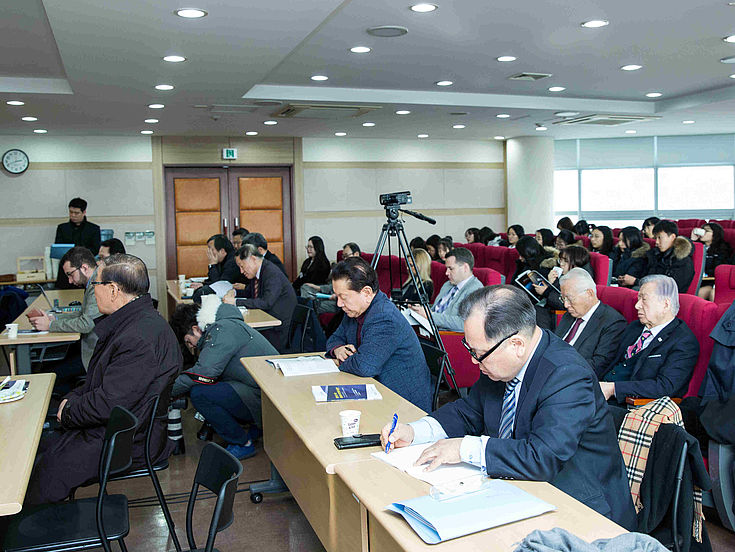Perspectives from Pyongyang
Life under Sanctions
Speakers and Discussants of the Forum
The event took place on December 14th, 2017, from 2pm to 5.30pm in the Bright Society Club at Yulgok-ro in Seoul. The Tongil Hankuk Forum is a bimonthly event organized jointly by the Institute for Peace Affairs and the Hanns Seidel Foundation Korea since 2016. The 15th edition of the event hosted a special guest - Thomas Fisler, former Director of the Pyongyang Bureau of the Swiss Agency for Development and Cooperation (SDC) who lived and worked in Pyongyang for the last 4 years.
The event started with the introductory remarks by Son Jae-shik, the Chairman of the Tongil-Hankook-Forum who stressed out the inevitability of sanctions in the current situation and their diverse impacts on the North Korean society. The opening address was followed by the main discussion moderated by Kim Hong-jae, Former Director of Education Department in the Ministry of Unification. Thomas Fisler presented the keynote speech where he explained the situation and tasks of humanitarian projects in North Korea based on the example of the SDC.
Thomas Fisler holding the Keynote Speech
Humanitarian Support Under Sanctions
"Nearly 2 million children and mothers are in need of basic nutritional support, and almost 30 % of under-five year-olds are affected by stunting. The humanitarian situation is forgotten by the international community in many years", said Mr. Fisler in the beginning of his presentation. He also stressed out that over 350,000 pregnant women are constantly at severe risk of life-threatening situations due to poor health care services. Mr. Fisler also pointed out the uniqueness of North Korea where exceptional weather situations such as flood, drought, erosion and landslides further weaken the coping mechanisms and can quickly invoke into catastrophes as it has happened many times in the last couple of years.
Mr. Fisler then described SDC humanitarian aid efforts focused on three main areas: public health (water sanitation and hygiene), food security and environmental protection. He highlighted that humanitarian assistance should not be affected by political influences and that the aid should always reach beneficiaries without preconditions. Mr. Fisler underscored the importance of water in the food security issues and also concluded that although there is no hunger in North Korea currently the food insecurity - lack of diversity and insufficient supply - is an unsolved humanitarian issue in North Korea. Mr. Fisler explained that the humanitarian aid to the North is marginal approximately 60 mln USD annually with Switzerland being the second biggest donor that contributes with around 10 mln USD annually.
Glance at the Audience of the Forum
In the following roundtable discussions Hwang Namhui, Senior Research Fellow at the Korea Institute for Health and Social Affairs, talked about ongoing sanctions and their impact on the North Korean society. She presented recent urban and economic development in North Korea and talked about major factors that affect the increase of living standards. Son Jong-do, a Department Head from Korean Sharing Movement, referred to the food insecurity situation as he explained the elasticity of market prices of rice amidst sanctions. He pointed out that it is difficult to outline the direct relationship between sanctions and market prices as there are more factors that contribute to the general market situation such as weather conditions that influence harvests and food supply chain.
The roundtable was followed by the Question and Answers session with the in-depth discussion between the panelists and the audience. Bernhard Seliger, Resident Representative of the Hanns Seidel Foundation Korea concluded the event with closing remarks. More than 50 academics, policy-makers, diplomats, practitioners and students participated in the event.



